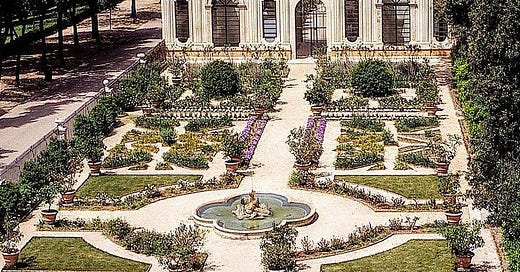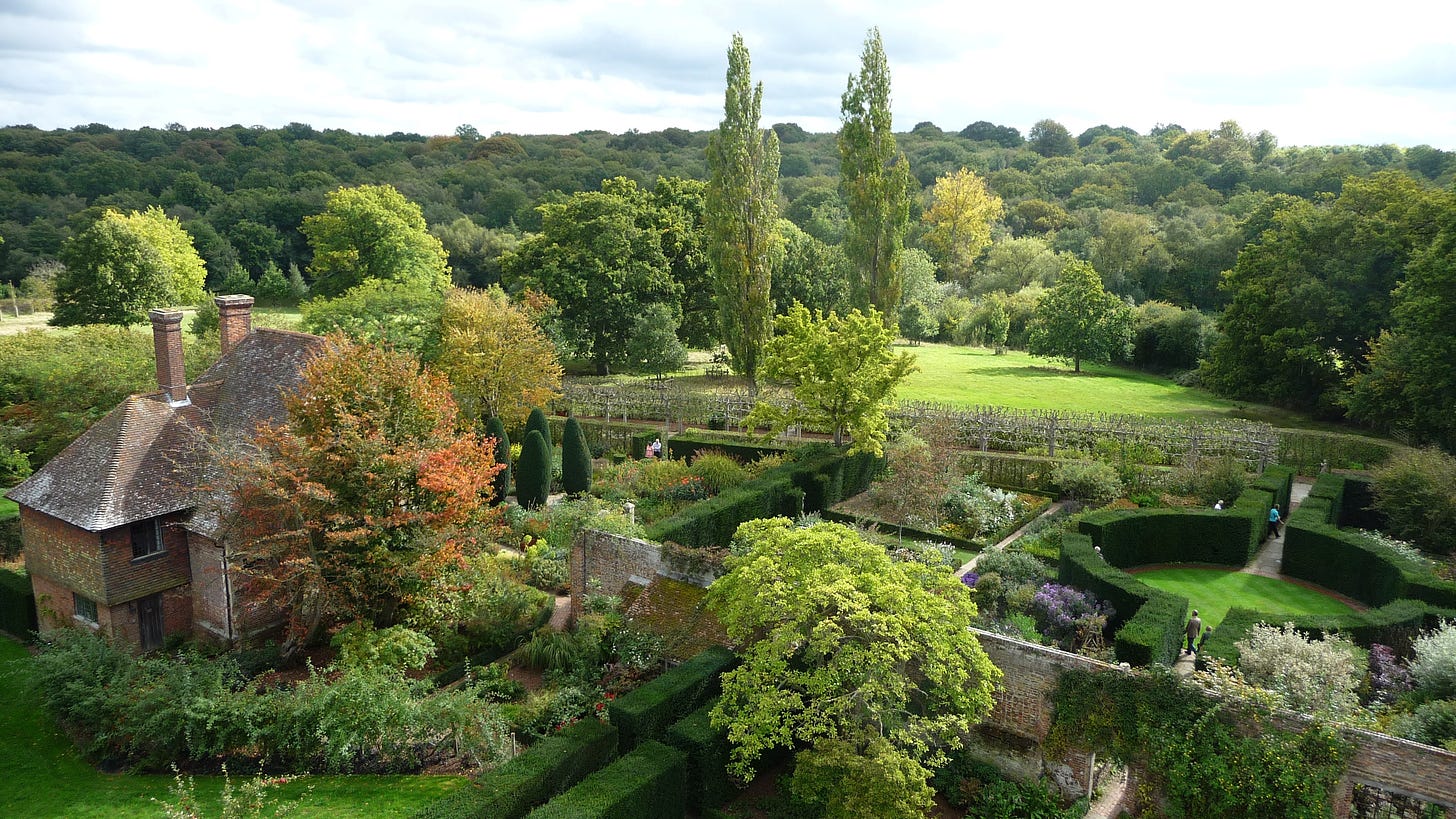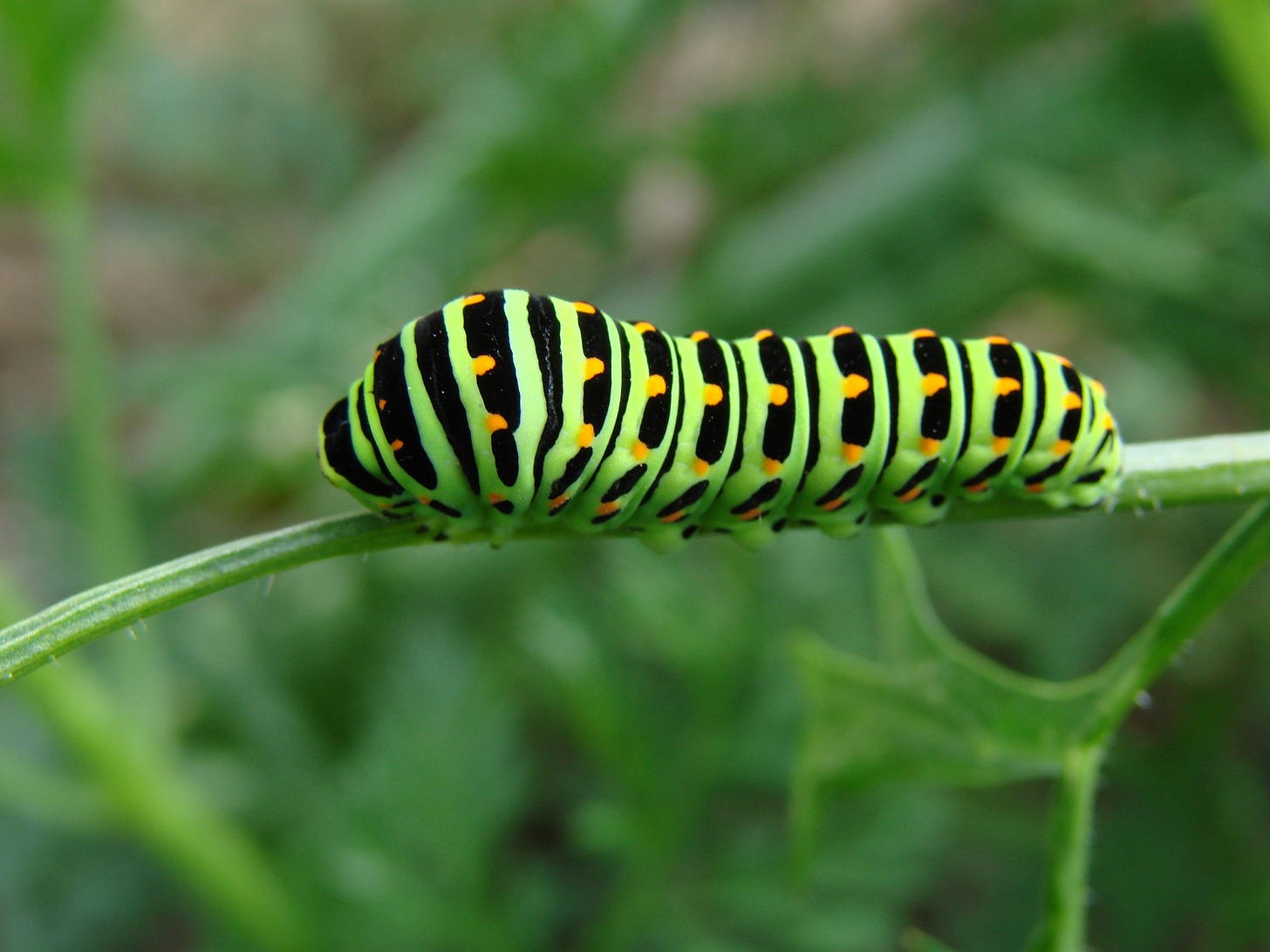Modern Nature: February 13
Monday 13
The first rain in weeks and that rather listless, though driven by a strong breeze. It barely dampened the shingle - overnight one of the rosemary bushes has shed its leaves, the same that proved so tender last year. The crocuses blown in circles are full out, fighting an unequal battle with the gusts; beyond them the sea is running high, splashed with white horses. By noon the first of the daffodils opens, bowed almost to the ground by the inclement weather. We’ve prayed for a good rain (last night I watered the front garden), not this short change in the isobars.
Rome 1946 - Borghese Garden
There we lived in a flat requisitioned from Admiral Ciano, the uncle of Mussolini’s foreign secretary.
‘And he walked in the garden in the cool of the day,’ where he planted ‘every tree that is pleasant’. Each park dreams of Paradise; the word itself is Persian for garden. This particular shadow of Eden was originally the grounds of the villa that Scipione Borghese built for himself early in the seventeenth century. Here in the cool of a summer afternoon I rode the tough little donkeys through glades of acanthus, under old cedar trees to a water clock which kept time on a cascade of fern covered rocks.
~
Time itself must have started in earnest after the Fall, because the seven days in which the world was created we now know was an eternity. The ancient Egyptians, whose lives were measured by the annual rise and fall of the Nile, were amongst the first to mark its passage systematically; the Borghese garden commemorates the Egyptians with the gateway in the form of twin pylons.
~
In every corner the park mapped out Time’s History: its glades were strewn with monuments to mark its passing. Not the least of which was a circle of marble worthies put up at the end of the nineteenth century to celebrate the unification of Italy: a series of pasty po-faced poets, politicians, musicians, and engineers, who had paved the way for the modern state. Idiotically solemn, these dumb statues were always in danger of the graffiti brush - some had red noses; for me these were the most interesting.
What Scipione with his grand vision would have thought of all these worthies in the ruins of his Eden I cannot imagine. He strutted about in his cardinal’s scarlet and built a dynasty and his ostentatious polychrome villa: a vulgar gilded pleasure palace in the modern manner, filled with yet more antique marbles. A far cry from Adam’s wooden hut in Paradise, no double built from the timbers of the tree of knowledge - the very first house, which generations attempted to capture in a thousand garden houses, rustic summer houses and cottages ornées.
One day I returned home to our flat in via Paesiello for tea, to find that the seven days of the week were now mapped out by bells - and lessons at the American School.
Years later, in 1972, I returned to the Borghese gardens with a soldier I met in the Cinema Olympia. He had thrown his arms around me in the gods; later we made love under the stars of my Eden.
Sissinghurst, September ‘88
Sissinghurst, that elegant sodom in the garden of England, is ‘heritized’ in the institutional hands of the National Trust. It's magic has fled in the vacant eyes of tourists. If two boys kissed in the silver garden now, you can be sure guardsmen through the herbaceous borders return long after the last curious coachload has departed, the tea shoppe closed, and the general public has returned home to pore over the salacious Sundays, ferreting out another attention and affection who has split the beans for the illusory security of cash. ‘He pulled down the boy’s pants and blew him for £20 in the corridor of a cinema/a public lavatory/a deserted station, they met in a seedy club/Half Moon Street/the Dorchester.’
Two young men holding hands in the street court ridicule, kissing they court arrest, so the worthy politicians, their collaborators, the priests, and the general public push them into corners where they can betray them in the dark. Judases in the garden of Gethsemane.
Cambridge, Autumn 1948
Back home on a storm-tossed troop ship, from the marble halls of old Admiral Ciano’s house in Rome to a lead-grey Nissen hut near Cambridge - filled with thicken suffocating coke fumes and running with a condensation that quickly cover our clothes with mildew.
Outside, my father inflates an old yellow dinghy: a makeshift swimming pool. It smells strongly of rubber and is quickly filled with large black water beetles, which appear as from the sky - perhaps from the huge branches of the walnut tree which casts its shadow across the lawn.
Autumn days spent throwing sticks into the tree and falling over backwards, hoping to bring down the hard little nuts in their green shells; until dizzy with fatigue we lie on our backs and watch the sky and tree revolve like a Catherine wheel.
~
The garden at Cambridge consisted of the walnut tree and an uneven lawn from whose clippings I constructed grass forts, which rotted until the fermenting grass turned slippery. The garden was bounded by an old brick wall covered with caterpillars of the Large White, basking in the sunlight in various states of pupation.
~
The yellow-green and black caterpillars remain a vivid memory. Last year, as the autumn came, the nasturtiums outside the window which I carefully nurtured here, were overwhelmed by an army of them. When the first frosts came, in October, they had eaten every leaf and flower.
to whom it may concern
in the dead stones of a planet
no longer remembered as earth
may he decipher this opaque hieroglyph
perform an archeology of soul
on these precious fragments
all that remains of our vanished days
here - at the sea's edge
I have planted a stony garden
dragon tooth dolmen spring up
to defend the porch
steadfast warriorsIf you are new here, or just simply wish to re-read previous entries, you can find older dates in this newsletter by clicking here.







